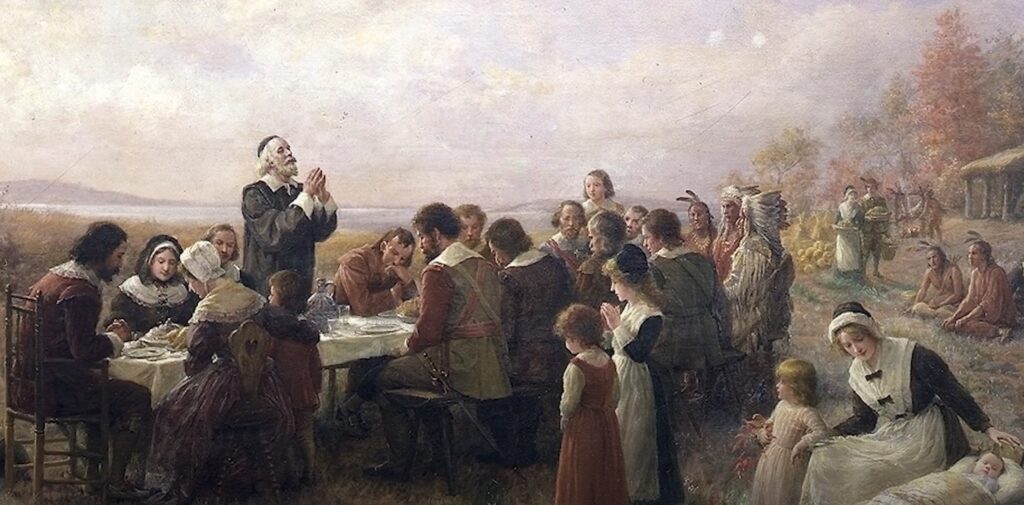Thanksgiving’s Legacy – A Reflection on Unity and Gratitude
Thanksgiving today often evokes images of family gatherings, tables overflowing with food, and moments of reflection on the blessings of the year. Yet, its historical origins are far more complex than the romanticized versions often shared. Understanding the legacy of Thanksgiving requires us to balance the historical record with the ideals the holiday represents today: unity, gratitude, and shared humanity.
From Harvest Feast to National Holiday
The 1621 harvest meal shared by the pilgrims and the Wampanoags, though significant, was not an annual tradition. Another celebration occurred in Plymouth two years later, but Thanksgiving as we know it took centuries to develop. Colonies across America observed various days of thanksgiving to commemorate events like military victories or bountiful harvests. These were often religious observances, focusing on prayer and worship rather than feasting.
It wasn’t until 1863, during the height of the Civil War, that Abraham Lincoln proclaimed Thanksgiving a national holiday. Lincoln’s intent was to promote unity in a deeply divided nation. By this time, the historical events of 1621 had been romanticized, casting Thanksgiving as a symbol of harmony and cooperation. This idealized version of history often overshadowed the complexities of early relationships between settlers and native tribes.
Unity Amid Imperfection
The story of the first Thanksgiving highlights a remarkable moment in history: people of vastly different cultures, beliefs, and backgrounds set aside their differences to share a meal. It wasn’t a perfect relationship, trust was fragile, misunderstandings were frequent, and the alliance was ultimately temporary. Yet, that shared meal stands as a testament to what can happen when humanity seeks common ground.
In a world increasingly divided along political, cultural, and ideological lines, Thanksgiving challenges us to embrace unity even in the face of our imperfections. The pilgrims and the Wampanoags were far from perfect, yet they managed to cooperate and celebrate together, even if only for a season.
Gratitude in the Midst of Struggle
The early settlers faced unimaginable hardships: starvation, disease, and the uncertainty of life in a new land. The Wampanoags, too, were navigating the loss of their people and their way of life. Despite these challenges, both groups found reasons to give thanks.
For the pilgrims, gratitude was deeply rooted in their faith. They saw their survival as a testament to God’s providence, even in the face of overwhelming odds. For the Wampanoags, who had faced their own trials, the ability to forge alliances and adapt to changing circumstances was a testament to their resilience.
As we gather around our tables today, we can draw inspiration from this legacy of gratitude. In our own struggles, whether personal, societal, or global, we, too, can find reasons to be thankful. Thanksgiving reminds us that gratitude is not about ignoring hardship but about finding hope and purpose in the midst of it.
The Call to Reconcile
The history of Thanksgiving also reminds us of the need for reconciliation. The relationships between settlers and native tribes were marked by cooperation and conflict, peace and betrayal. These complexities invite us to reflect on our own relationships and the ways we can seek understanding and unity with those who are different from us.
In a time when divisions often seem insurmountable, Thanksgiving calls us to set aside our differences and come together. Just as the pilgrims and Wampanoags shared a meal despite their challenges, we, too, can choose to build bridges instead of walls.
A Holiday for All People
Thanksgiving is not just a historical event, it’s a living tradition that invites us to reflect on what it means to be human. At its heart, Thanksgiving is a celebration of unity, gratitude, and resilience. It’s a reminder that even in the most difficult circumstances, we can find reasons to come together, to give thanks, and to share what we have with one another.
As you gather this Thanksgiving, consider the legacy of that first meal in Plymouth. It wasn’t perfect, but it was meaningful, a symbol of what can happen when we embrace the humanity of those around us. This year, let Thanksgiving be more than just a holiday. Let it be a reflection of unity and a commitment to gratitude in all things.

